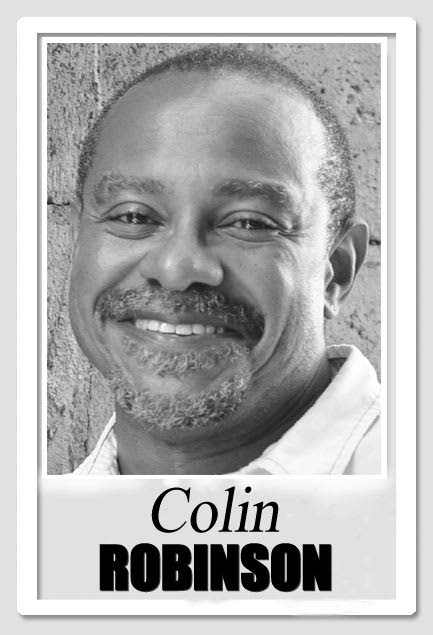Faucets and your children

SEA results came out Wednesday. The most life-changing day for most Trinbagonians outside the elite—determining, at 11, what life opportunity the State will offer you, based on one exam.
Unlike recent years’ attendant debates about education policy and how the Concordat fails the vast majority of our children, including one Catholic Archbishop’s soundbite that SEA is child abuse, there’s little this round.
Gratefully, Gabrielle Hosein unpacked Education Minister Garcia’s glee over a boy “topping” this year’s list, a pappyshow I (its honouree 43 years ago) continue to urge be abolished. Hosein asks why girls’ achievements are pivoted as boys’ failures.
But what does one boy placing first mean? For all the other boys the persistence of the exam fails year after year.
“Trinidad and Tobago’s approach to education can be classified as progress resistant…the education system remains limited in its ability to produce innovators and entrepreneurs and reduce the culture of dependency…There is a ‘Lack of courage to convert a 19th century, old colonial, missionary value system in education to a dynamic, authentic force for development in the twenty-first century.’” I didn’t need to write that. It’s from the PNM’s own Vision 2030.
Education scholar Theodore Lewis’s commentary, the day after results, noted, “If you are a plumber in Germany, you will belong to the middle class and have a nice home.”
But that’s no less true in TT. Our problem is we act as if it’s not. It’s certainly true for two of the most important men in my speed dial, both doing far better than me, despite my Common Entrance first place.
“It have plenty money in plumbing,” Michael, the office plumber agrees, sliding out from under the toilet bowl. I couldn’t pin him down for an interview. But Kurt Mitchell, WASA-licensed sanitary constructor, 20-year veteran, and owner of Performance Plumbing & Consultancy, generously offered guidance for young people (or their parents) planning to enter the plumbing field.
Mitchell was more modest about money. You start at minimum wage, he notes, but if you have skills, can earn up to $500 a week working for someone—a five-year requirement for licensing. A licensed plumber working independently earns $3,000-$5,000 weekly, he estimates. By comparison, a primary school teacher starts out after training college at under $10,000 monthly. A licence, after a WASA course lasting several months, authorises you to make connections to the mains and prepare building drawings.
Mitchell emphasises his role as a businessman who, like any other, needs two critical skills: communication, and calculation. Trades aren’t for those who “didn’t pass.” He laments past government decisions to dismantle a rigorous training programme he went through at former John Donaldson Technical Institute, where his mother enrolled him, notwithstanding academic success at secondary school.
Secondary schools offering vocational subjects can provide students the opportunity for CVQ certification in cutting and fitting pipes in Form 3, he says, and by a National Training Centre verifier in Form 5. But at some only welding may be offered, not plumbing.
How many SEA parents select their children’s secondary schools based on assessment of vocational offerings, I wonder. Mitchell has taught at Malick Secondary and recalls Corpus Christi convent collaborating with the Non-Traditional Jobs Programme years ago to initiate instruction.
Few women are in the field, though. And little unionisation, which would protect apprentices.
In a chat about her column, Hosein shared her vision of schools teaching every child the skills to build and maintain a house, and grow food.
While skill comes from experience, Mitchell stresses that moving from working for someone to being successful means having business acumen. And training. Can you complete a tender yourself, or need to pay someone to? Convince a bank to lend to you? Market your services? Calculate supply costs; and bill. Comply with business statutory requirements.
Plumbing also isn’t just building construction or household maintenance, Mitchell expands. There’s marine plumbing, where many pressurised systems are used. Swimming pools. Hospitals, malls, similar facilities. Sale of plumbing supplies. Environmental engineering. He’s trained in autocad, which WASA offers, enabling him to develop and submit plumbing designs electronically. (He e-bills me too.) Fixture complexity is increasing rapidly, too; he spends hours researching them, understanding written installation guidelines.
There might be other reasons to take up plumbing.
In panicked anticipation of April’s court ruling decriminalising buggery, an epic WhatsApp circulated, testament to the quality of our current education system: “There are many faucets that will be affected. Does the government have the finance and infrastructure for toilet facilities should this be passed? This is about preventing more chaos in a nation that is currently out of control and cannot deal with basic issues of flooding, running water.”
Jason Jones’s lawyers are back before the judge tomorrow.


Comments
"Faucets and your children"